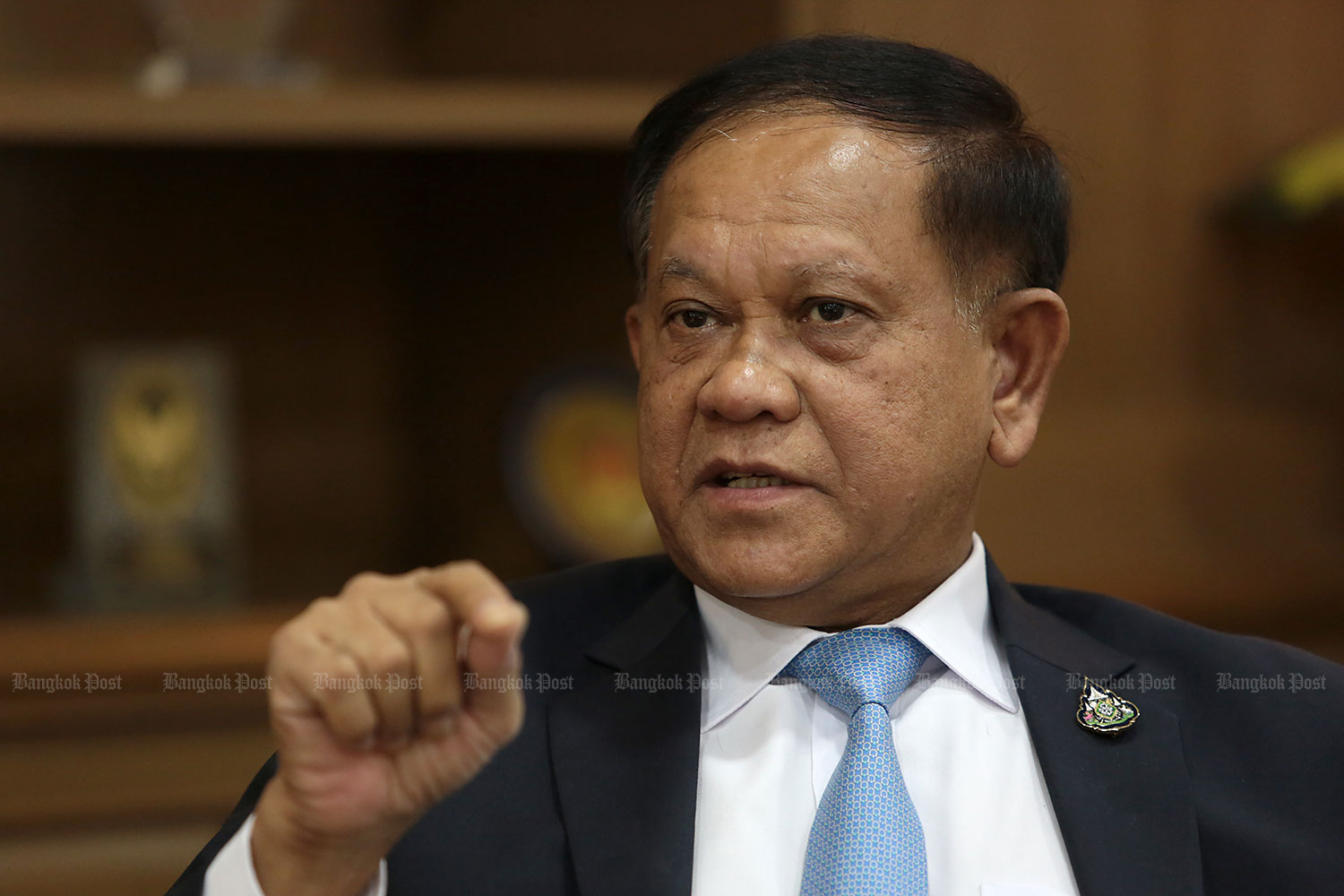
The government plans to completely lift the lockdown of all businesses and activities on July 1 across the country with preparations made in advance next month, the National Security Council (NSC) chief says.
This includes lifting inter-provincial travel restrictions as well as ending the emergency decree and curfew.
NSC secretary-general Gen Somsak Roongsita told the Bangkok Post yesterday lifting restrictions under the emergency decree would lead to a complete reopening of the country. Officials would next month prepare measures for the reopening.
"Authorities will have serious discussions because after the emergency decree ends, other laws will be used instead," he said.
"People's cooperation is important. This concerns the use of face masks, social distancing, hand washing and limiting activities. As long as the disease is spreading worldwide, we will have to fight against it for some time."
Gen Somsak said the executive decree on public administration in emergency situations, which was invoked on March 26 to deal with Covid-19, will end in June, and the ban on international travel would end at the same time it is lifted.
The 2005 Executive Decree on Public Administration in Emergency Situations empowers the government to impose a state of emergency for up to three months, which can later be extended.
The full reopening in July will come after the third phase of the relaxation takes place next month.
The government's Centre for Covid-19 Situation Administration (CCSA) will today finalise details on which businesses can resume -- and under what conditions -- under the third phase of relaxation next month.
On Wednesday, a committee evaluating the easing of lockdown measures did not reach a conclusion on opening high-risk activities such as boxing matches and massage outlets, said Mr Somsak, who chairs the committee.
For next month, Gen Somsak said curfew hours will be further shortened and more restrictions on inter-provincial travel will be lifted under the third phase.
CCSA spokesman Taweesilp Visanuyothin yesterday said more activities at shopping malls would resume and athletes' practising grounds would reopen.
Operators and customers will be required to use the "Thai Chana" mobile application for checking in and out of premises since the businesses allowed to reopen in this stage are moderate- to high-risk.
Meanwhile, Prasit Watanapa, dean of the Faculty of Medicine at Siriraj Hospital of Mahidol University, yesterday warned that a second wave of Covid-19 is likely for Thailand.
"I believe a second wave will come ... I am concerned about whether infection numbers will be high or low. If it comes back with a small number of infections and we can manage to keep it down, that's okay.
"If those who are infected don't die, they will have immunity. If two-thirds of Thais are immune to the virus, the pandemic will go away," Dr Prasit said in a video clip broadcast on Mahidol Channel.
He also mentioned contributing factors to Thailand's success in controlling the spread of the virus, saying most people have realised the importance of practising social distancing, wearing face masks and regular hand washing.
He also praised the government, the Public Health Ministry and medical experts for working together to manage the outbreak, though he said that when it comes to proactive testing, Thailand has not fared well compared to neighbours like Singapore.
Addressing the lockdown easing, he said people will go out and about whenever restrictions are relaxed, which will put them at risk.
The only precautions for them are to wear face masks and wash their hands frequently, he said.
Dr Prasit said Thailand should learn the lesson from those countries like South Korea and Singapore which managed to control the Covid-19 outbreak, only to struggle with new surges in infections.
"Whether the second wave will be severe depends on the decision-makers in the government. They should not ease restrictions too early but do it gradually," said Dr Prasit.
Commenting on how long it will take for Thailand to return to normalcy, he estimated two years, adding a vaccine will likely not come out until March 2021 at the earliest.